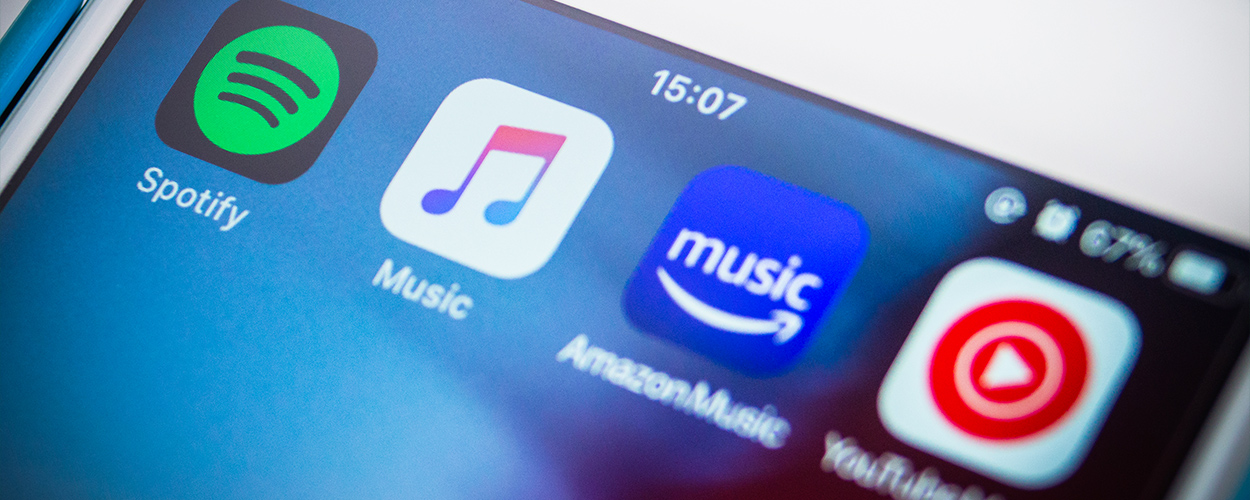This website uses cookies so that we can provide you with the best user experience possible. Cookie information is stored in your browser and performs functions such as recognising you when you return to our website and helping our team to understand which sections of the website you find most interesting and useful.
Business News CMU Digest
CMU Digest 03.07.22: CRB streaming rates, Music Education Plan, NZ copyright, TikTok, Viagogo
By Chris Cooke | Published on Sunday 3 July 2022

The key stories from the last week in the music business…
The US Copyright Royalty Board reconfirmed its previous decision to increase the streaming royalty paid to songwriters and music publishers. The mechanical copying of songs is covered by a compulsory licence in the US, which is why the CRB sets the rate streaming services pay. In its original ruling for the period 2018 to 2022, the CRB said that the rate should increase each year so that, over the period, it would go up from 10.5% of service revenues to 15.1%. That brought the US statutory rate in line with what some publishers and collecting societies have already negotiated elsewhere in the world. However, most of the streaming services nevertheless appealed the decision. An appeals court previously said that the CRB did indeed have to reconsider its original ruling, but after doing some reconsideration the CRB judges decided to keep the top-line rate increases in place. That said, second time round the CRB did alter some of its decisions relating to minimum guarantees and bundling rules in a way that favoured the services. With the rates for 2018 to 2022 now confirmed, lobbying is already underway regarding what they should be from 2023 to 2027. [READ MORE]
The UK music community cautiously welcomed the new plan for music education in England. That new plan includes some funding commitments and also clearly sets out the value of young people receiving a music education, which was welcomed, given that creative subjects have tended to be given less priority in English schools over the last decade. The Musicians’ Union said “the plan is the most coherent description of a vision for music education in England that the government has provided to date”. That said, some concerns remain, including that England’s music education hubs are being asked to achieve more when funding has declined in real terms over the last ten years, plus the plan is non-statutory “suggesting that accountability could be a challenge where schools do not engage with [it]”. Nevertheless, various music industry groups agreed that the plan is a step in the right direction regarding music education in England. [READ MORE]
New Zealand confirmed that the sound recording copyright term in the country is being increased to 70 years after release. That brings NZ copyright law in line with the copyright systems of Europe, Canada and Australia. Previously the copyright term for sound recordings in New Zealand was 50 years after release – extending said term was a condition of a new free trade agreement with the European Union. The boss of Recorded Music NZ, Jo Oliver, said: “Extending the copyright term to 70 years from the date of release puts New Zealand artists and rightsholders on a level playing field with their overseas counterparts”. [READ MORE]
A commissioner at US media regulator the FCC urged Apple and Google to block the TikTok app. There have, of course, been concerns for sometime that user data from China-owned TikTok ends up with Chinese officials. It was based on those concerns that previous US President Donald Trump tried to ban TikTok within the US, a move overturned by current President Joe Biden once he was elected. In an open letter, Brendan Carr – an FCC Commissioner appointed by Trump – cited a recent BuzzFeed article which said that China-based execs at TikTok owner Bytedance can access user-data relating to the video sharing app’s users in the US. He wrote that “at its core, TikTok functions as a sophisticated surveillance tool that harvests extensive amounts of personal and sensitive data”. With that in mind, he argued, it breaches the app store rules of both Apple and Google and, therefore, they should remove the TikTok app from their platforms. [READ MORE]
Viagogo was fined 23.5 million euros in Italy for breaking the country’s rules on secondary ticketing. The fine, confirmed at a meeting of Italian internet regulator AGCOM and based on an investigation by Italy’s financial crime enforcement agency the Guardia Di Finanza, related to the unofficial sale of tickets to 131 Italian events via the Viagogo site. It’s not the first time the often controversial ticket resale platform has been fined in Italy, where there are pretty strict rules regarding the sale and resale of tickets. A Viagogo spokesperson said that Italy’s Council Of State has asked the European Union courts to confirm whether or not the country’s rules restricting the resale of tickets are compatible with EU law, and that it expects those proceedings to result in “all fines” being ultimately annulled. [READ MORE]





